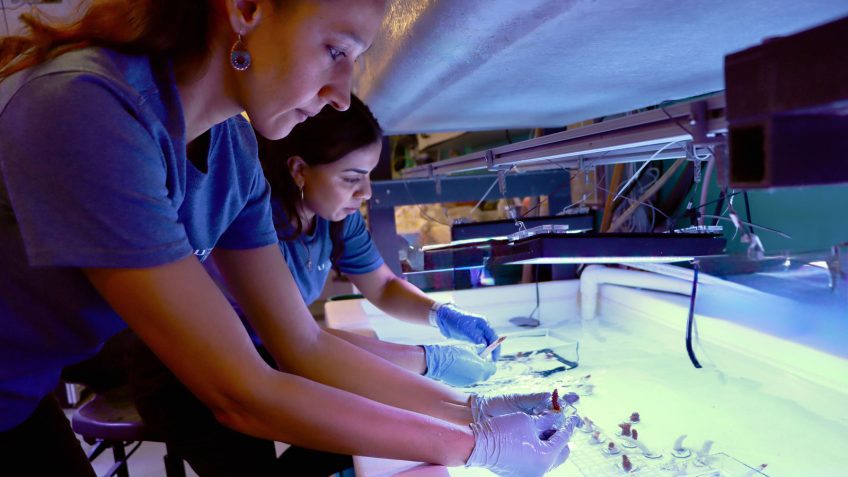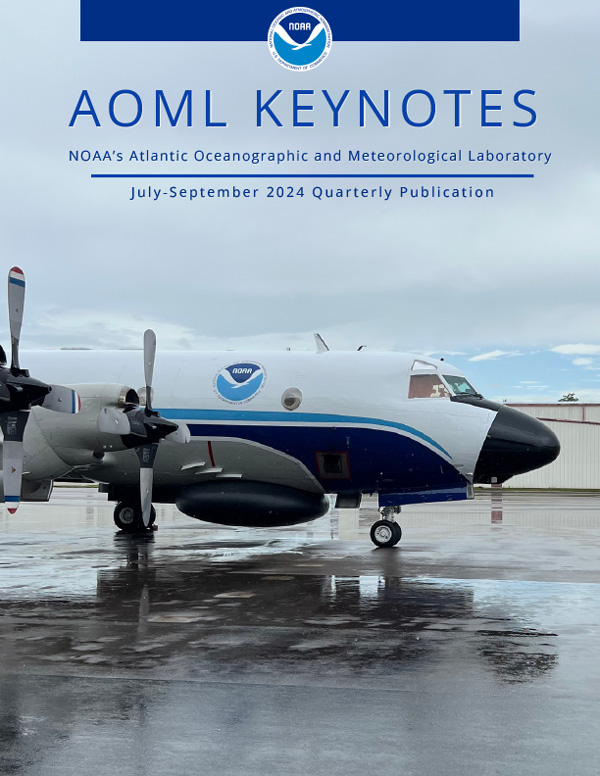A new model predicts dynamic seawater chemistry on Florida’s coral reefs
Water masses move over reefs, seagrass beds, and sandbanks – and as they do, the seawater chemistry changes. In the Florida Keys, changes in coral reef carbonate chemistry are driven by benthic metabolism, the origin of the water mass, and the connectivity of habitats. A new study from NOAA’s Atlantic Oceanographic and Meteorological Laboratory (AOML) […]










